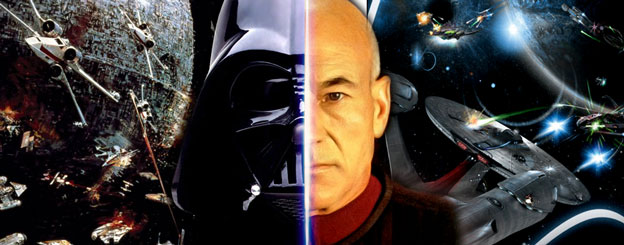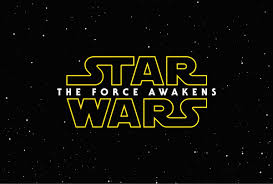
There are many great conundrums in life. “Less Filling” versus “Tastes Great”; Ginger versus Mary Ann; and, since we just completed Thanksgiving, white meat versus dark meat. But there is potentially no greater debate than that of two of the greatest followings of the late 20th/early 21st century: are you Star Wars or Star Trek?
Ever since the time of Jules Verne – hell, if we are serious, we’ve wondered since we drew images on the caves 35,000 years ago – man has tried to figure out what was beyond our earthly bounds. Leonardo da Vinci is alleged to have created blueprints for rockets and their flight; H. G. Wells used his imagination towards the subject to pen some of the great science fiction of the early 20th century and Albert Einstein actually did the math that would lead to our voyages to the stars. It wasn’t until other German scientists, led by Werner von Braun, actually harnessed the power of rocketry that those dreams became reality.
Since that time, mankind has achieved tremendous feats in the weightlessness beyond our Earth. There were the Apollo landings by NASA in the 1960s/70s, but the then-U. S. S. R. achieved longevity records for time in space and actually built the first long-term space station, Mir, in the 1980s (Skylab, for all of its exploits in the 1970s, only had three missions total with the longest lasting 84 days). Today, the International Space Station stands as perhaps the closest thing to mankind, regardless of nationality, joining together in our best efforts in space and its exploration.
The reach beyond the moon, however, has been limited to unmanned probes and satellites chocked full of cameras and data recorders that can capture the base information of the bodies it passes. These devices, however, lack the human capability of viewing the universe surrounding us and its wonder, of transmitting this astonishment back to a ravenous audience who wants to know what is out in the heavens beyond. Thus, we have to depend on the visionaries who have crafted a universe that soothes our curiosity somewhat but lights the fire of that same curiosity on another hand.

The visionary Gene Roddenberry was the first to take a crack at this difficult task. Star Trek, created by Roddenberry in 1966, showed a Planet Earth that didn’t recognize national boundaries anymore but organized under the “United Federation of Planets.” The flagship of the Federation was the starship Enterprise, captained by James Kirk (and later Jean-Luc Picard) and replete with all nationalities from Planet Earth on board. There was even an alien, Mr. Spock, who hailed from the planet Vulcan. Their “five year mission” was to explore the galaxies and discover new situations, something that has been a human trait since crawling out of the primordial ooze.
The show wasn’t initially popular as people had a difficult time wrapping their minds around Roddenberry’s concept. Roddenberry was trying to detail the difficulties of society at that time in an arena where such discussion could be possible. While it may seem that Kirk’s machismo and swashbuckling style was the rule, examinations of race relations, destruction of the environment and the devastating effects of war were the overarching storylines that appeared. These themes (as well as many others) were the true staple of Roddenberry’s work on the program and over the wealth of Star Trek-related spinoffs over the past 50 years.

In 1977, another entry came into the view of what the galaxy looked like. Envisioned by George Lucas and nearly as dear to him as Star Trek had been to Roddenberry, the movie Star Wars premiered on May 25, 1977. Initially not thought to be much by the studios (Star Wars was a toss-in with American Graffiti by Universal Studios to sign Lucas to a contract), the film would turn out to be one of the biggest movies of 1977, earning over $775 million ($1.3 billion today) worldwide in box office receipts (all totaled, the Star Wars franchise has earned over $4.4 billion in its existence). The film would go on to have five sequels/prequels, with the sixth – Star Wars: The Force Awakens – set for release on December 18.
Since Star Wars joined into the “vision of space race” with Star Trek, however, there has been a battle between the franchises for the minds of fans. Many involved in this battle believe that a person may accept one of the franchises but cannot accept the other, forcing many to choose sides in this epic battle. My question would be…why? The two shows come at the subject of the universe from two completely different angles and, through combination, offer an excellent approach.
When he first conceived Star Trek, Roddenberry envisioned the “perfect” state of humanity – perhaps most importantly peace among the Planet Earth’s nations – that continued to thirst for adventure, knowledge and exploration of the interplanetary universe that surrounded their ship. They would achieve those goals in a state-of-the-art vessel that included the scientific devices that might be found in any assortment of satellites along with the eyes that could relate the wonder of what was being seen.
Star Trek came at the questions regarding the universe from a purely scientific standpoint. There was the philosophical contemplation about man’s (or any species’) place in the galaxies, the dilemma over how to handle a race or species that wasn’t as scientifically advanced and many other conundrums that we face even today. The devices used during the run of the Star Trek franchise have also become scientific items that are commonly used such as cellphones, medical scanners and the like. The Star Trek universe is continuing to expand despite turning 50 next year… a new television/web series is set to premiere on CBS in 2017.
Instead of an array of devices (although some of them were quite impressive…who doesn’t want a lightsaber?), Star Wars chose to tell the story of space as an opera, a Shakespearean play, rather than as a scientific endeavor. The clash of good versus evil, father versus son and even the collision of worlds and their destruction formed the basis for what essentially was a soap opera for geeks (and we can say that proudly, by the way). Each new incarnation of the film extended the story and it isn’t over yet; over the next few years, there are two more Star Wars-specific films in the works and several movie projects on characters – providing “background” to the stories being told – that make up the Star Wars universe.
Being able to accept both Star Trek and Star Wars as a future existence would be perhaps the way it was meant to be. While we have the technological amazement and advancements that would make such a journey a true adventure, there is also the potential for the dramatic and even perhaps violent turns that such journeys can take. In a perfect world, an interdependency between the two franchises and their theories would also prove to be the best approach to the potential problems of intergalactic travel, with each side providing the answer to the questions that are presented.
Thus, as both franchises continue on their individual courses, perhaps they are more alike than they realize. Perhaps they look to achieve the best that the human being – and aliens – can achieve in the myriad of parts that make us whole. Perhaps, just perhaps, Star Wars and Star Trek are the epitome of what we can be rather than the “one side or another” proposition that is offered.